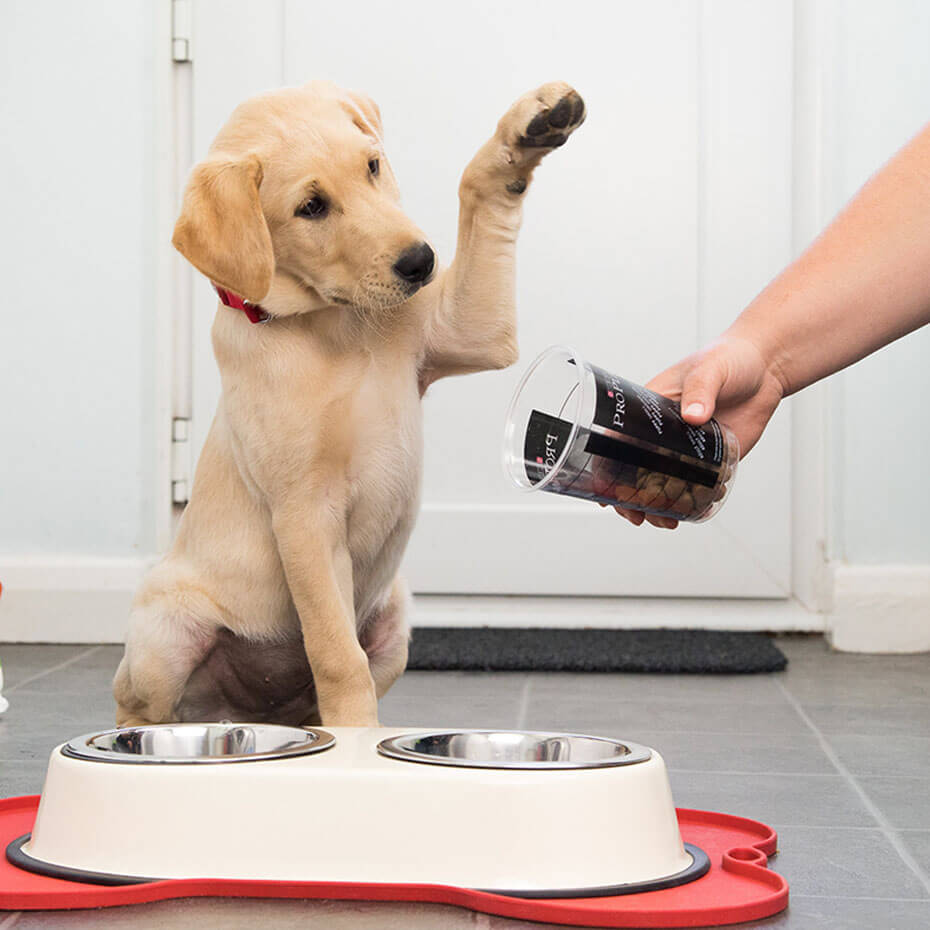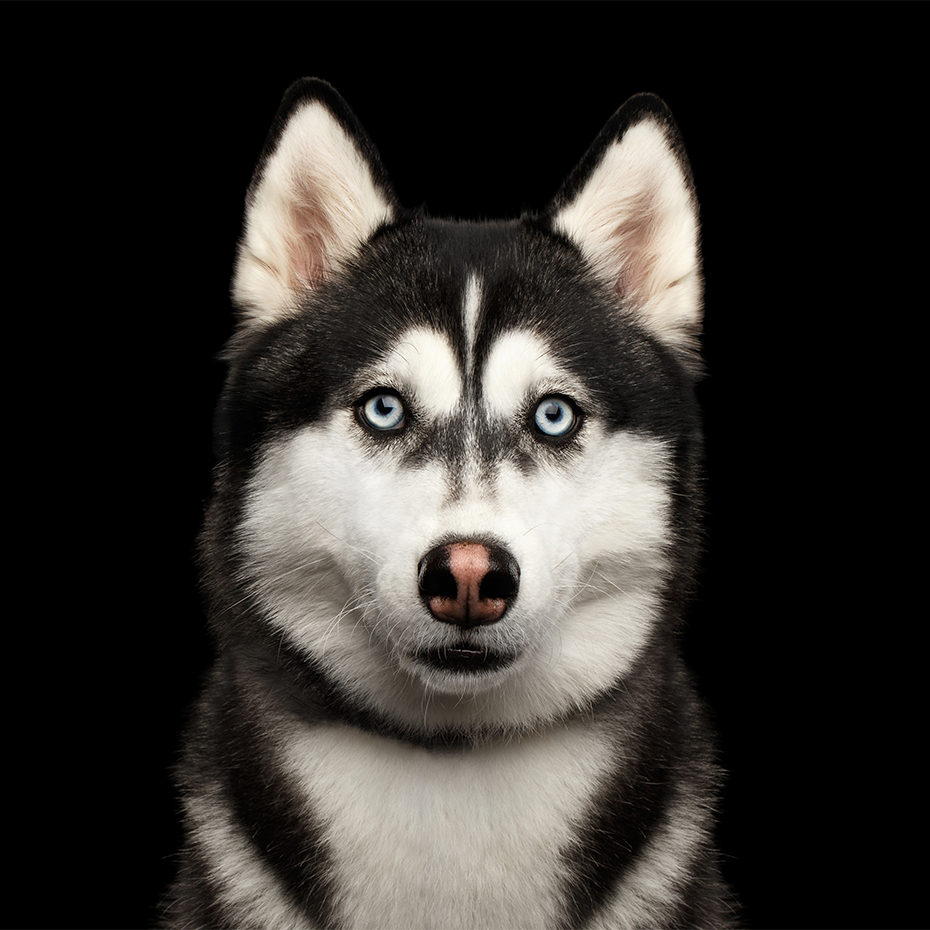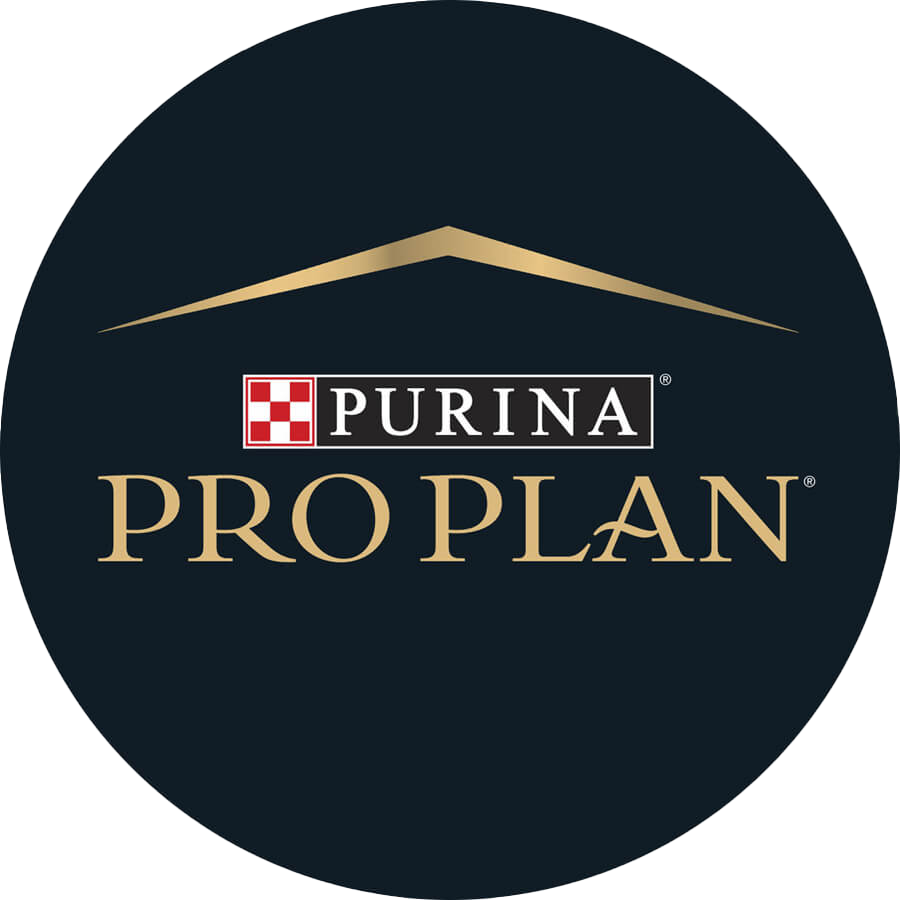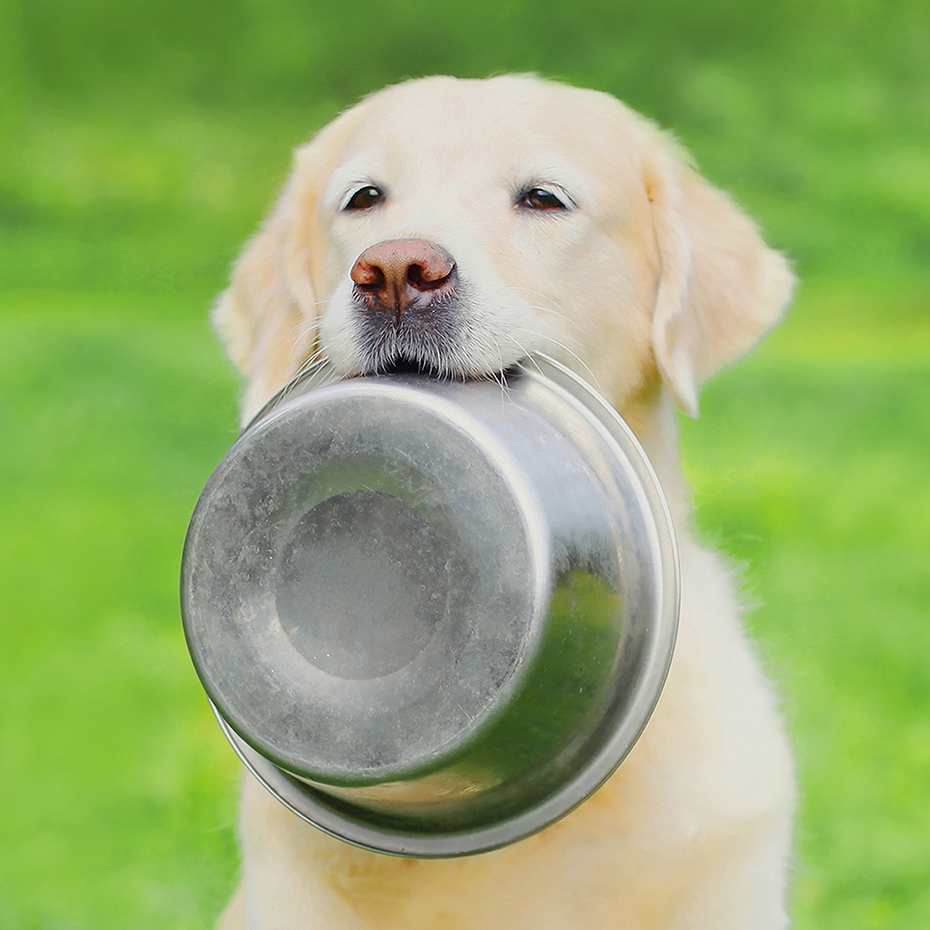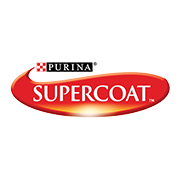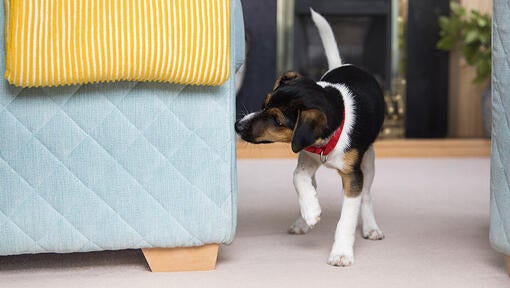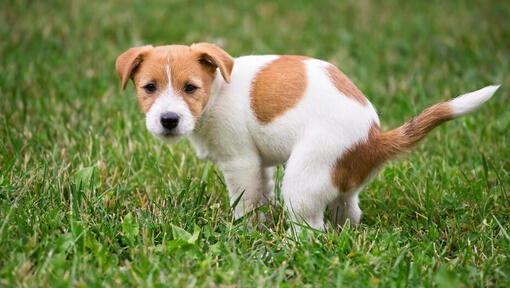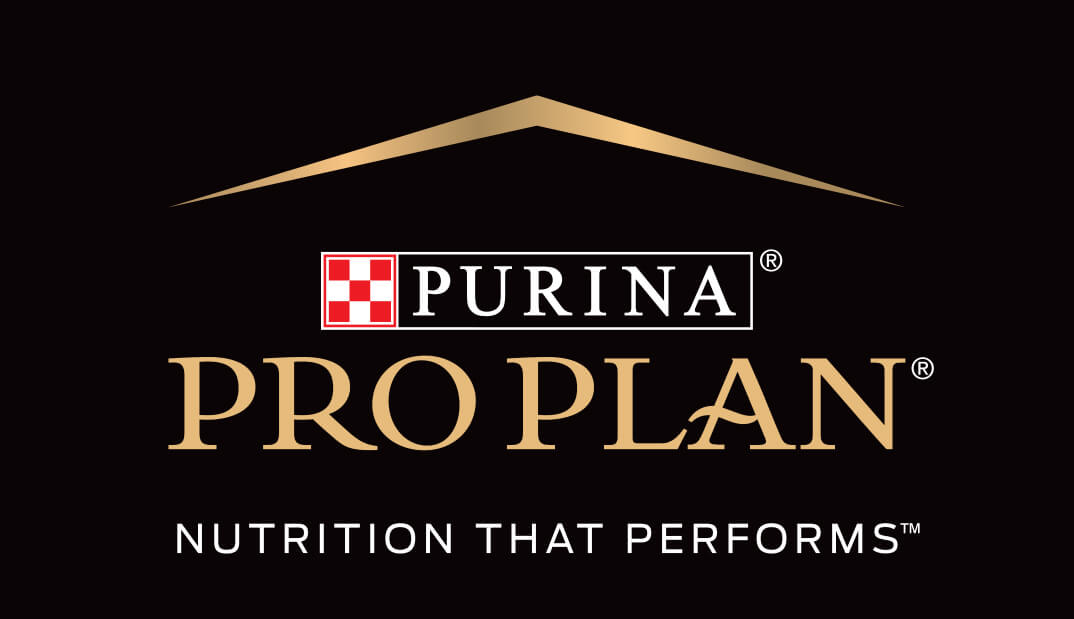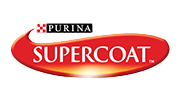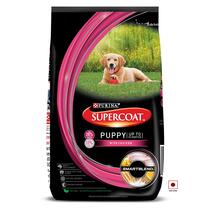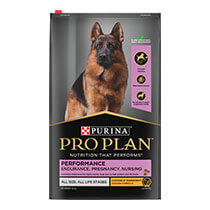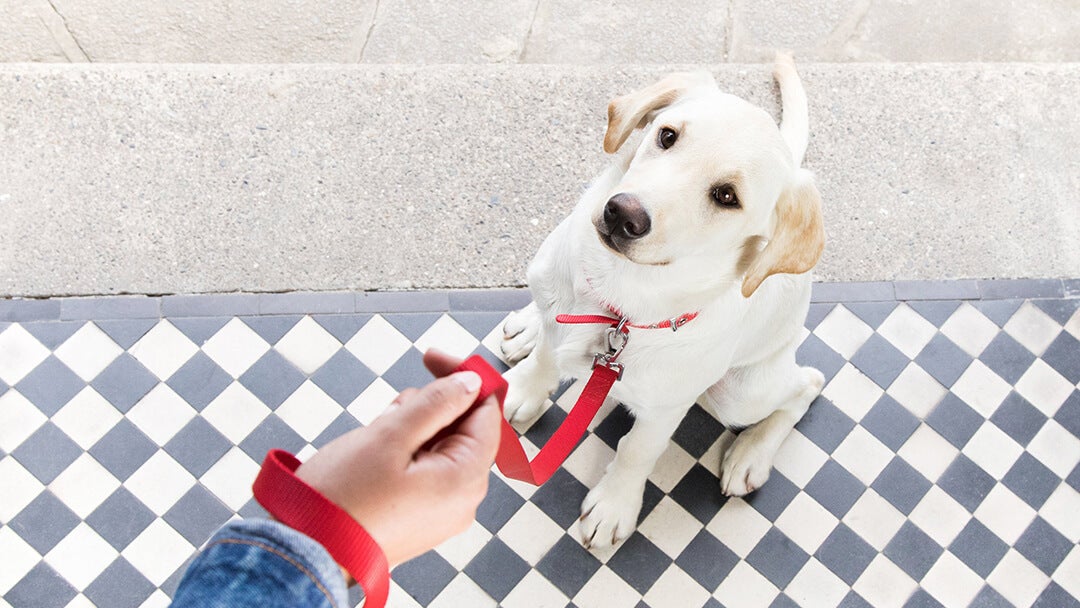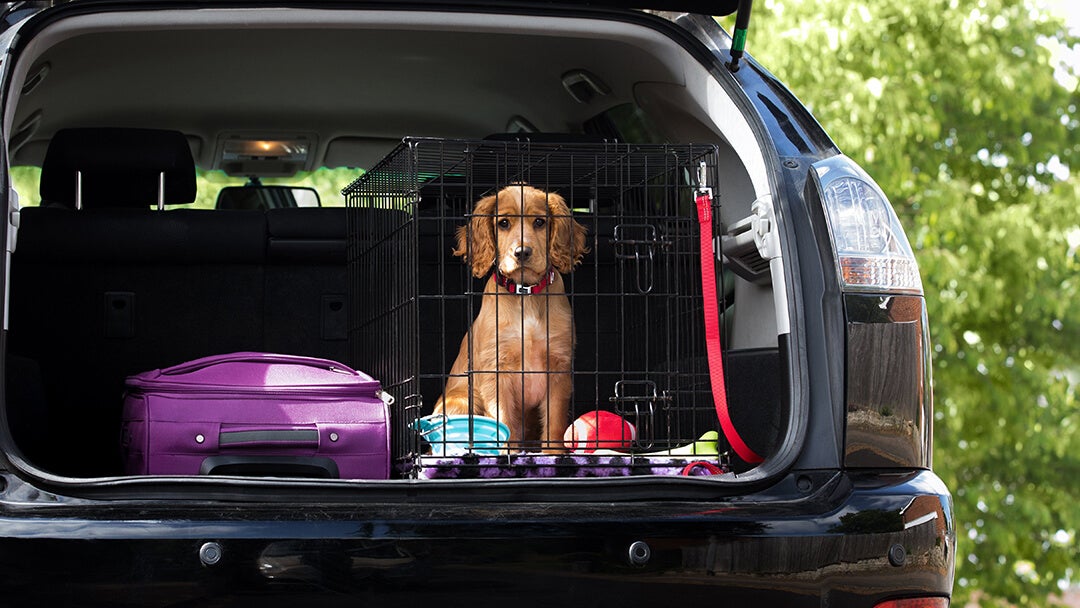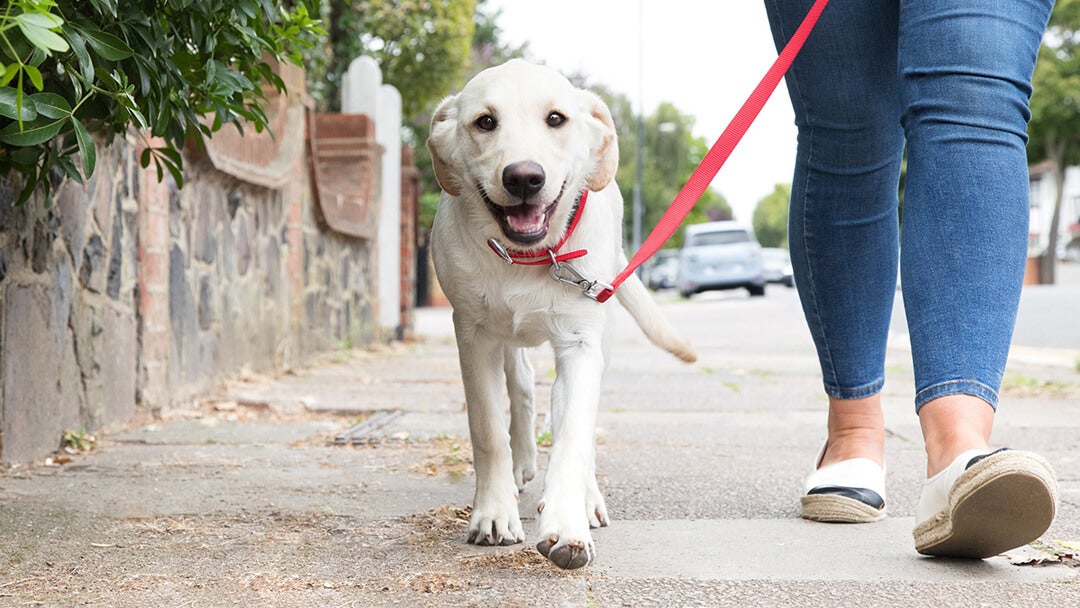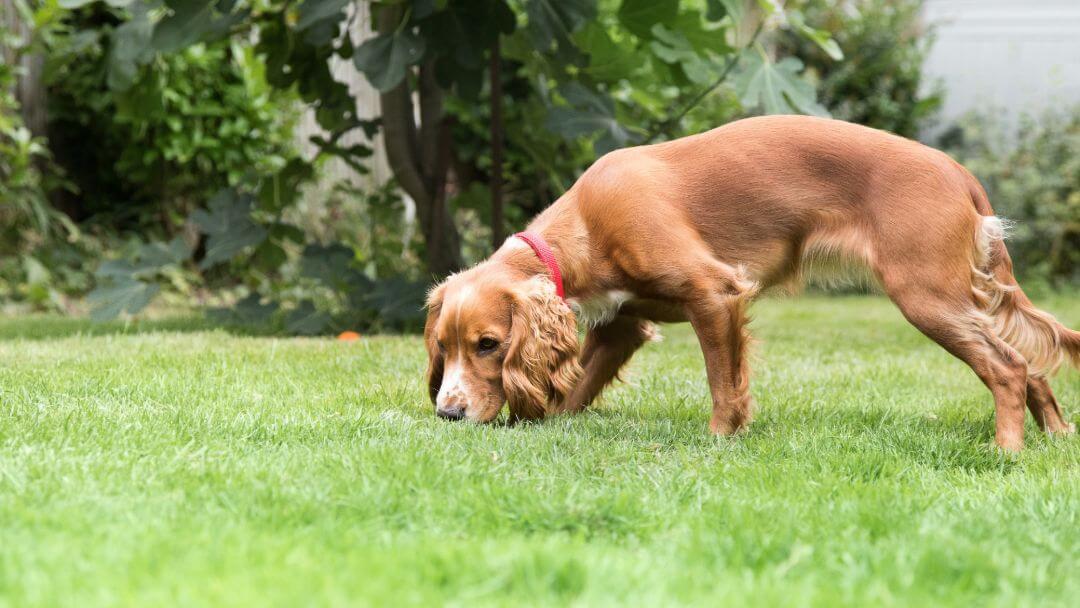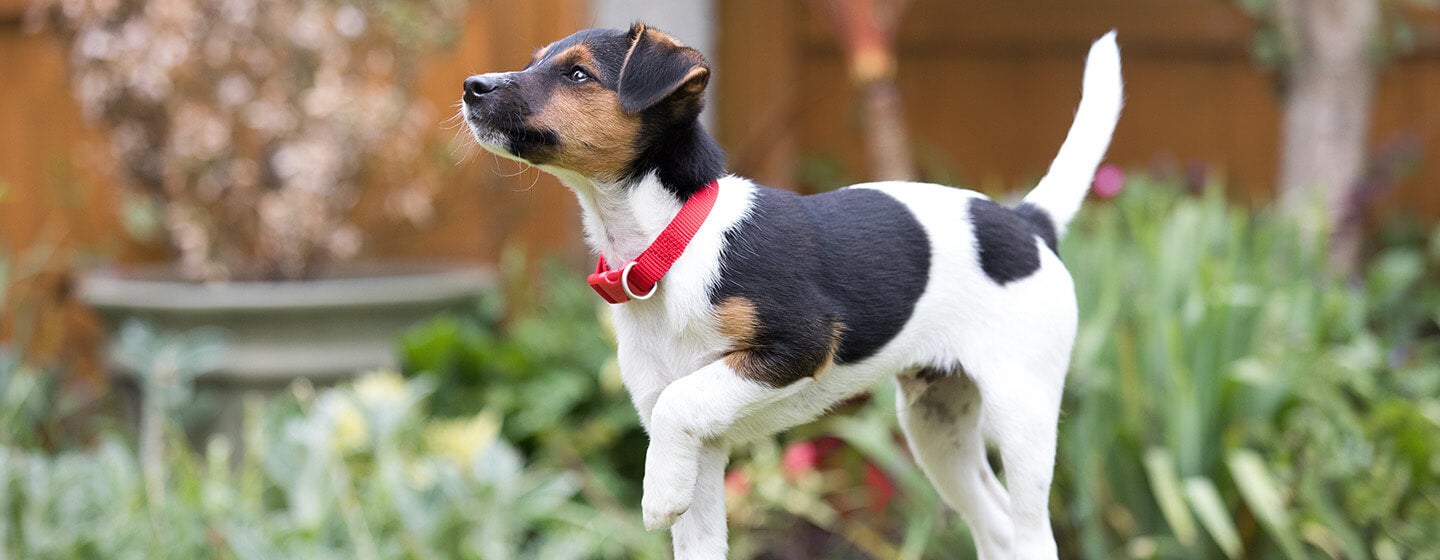
Bringing home a new puppy is such an exciting moment and one you’ll never forget! Although there’s a lot to learn, one thing you’ll want to teach them as soon as they step paws into your home is house training.
You won’t have to wait long to discover that puppies pee a lot – sometimes up to 12 times a day! It’s your job to work out when they need to go outside, and teach them what to do once they get there. Keep reading to discover how to house train a puppy and learn how to notice the warning signs of when nature calls.
How long does it take to toilet train a puppy?
It will take between four to six months for your puppy to be fully house trained, but it will depend on their size, age and ability to learn. Some puppies can be toilet trained really quickly in a few weeks, whereas for some dogs it may take longer and could be up to a year.
How to tell when your puppy needs to go to the toilet
You can usually tell when your puppy 'wants to go' because they’ll look around anxiously, walk in circles and start sniffing in suitable corners looking for a place – that's your cue to take them outside! Calmly walk with them out to the toilet area. Wait for as long as you need to – sometimes puppies can get distracted by the excitement of the great outdoors, no matter how much they wanted to go!
How to toilet train a puppy
When considering how to toilet train a puppy it’s important that you follow these steps:
- Take your puppy to the toilet as soon as they wake up and after eating or drinking.
- Assign a toilet area, as this will help them recognise where to go.
- Once they’ve done their business, reward them with a treat and plenty of praise.
- Give them lots of opportunities to go to the toilet – at least every two hours.
- Don’t punish your puppy for accidents. This can slow progress, so keep the toilet training positive.
- Be consistent! Accidents are bound to happen, but stick to your routine and your puppy will soon be house trained.
The importance of a toilet area
When thinking about how to toilet train a puppy, you ideally want your dog to understand the difference between the ‘play’ part of your garden and the ‘toilet’ part. You can help them by fencing-off an area and lining it with bark chippings. This makes it look and smell different to the rest of the garden, so your puppy will soon learn to recognise it.
Most puppies like to go somewhere natural rather than concrete or paving, and bark or grass gives them an environment where they can pick up their scent from earlier. The most important thing when toilet training a puppy like this is to keep their toilet area clean by clearing up any messes every day to encourage them to go back. Leftover mess in the area can put them off, and they may look for other areas to do their business.
Don’t carry the puppy outside
Try to avoid carrying your puppy outside to go to the toilet. Let your puppy walk as this will also help to stimulate the bladder and bowels and help them learn independence and gain confidence in their surroundings.
Routine is key to puppy toilet training
Once you’ve established a toilet area, take your puppy there routinely to let them use it and then reward them. If they sniff around but don’t do anything, be patient… you might have to wait for a little while. If they still don’t go, bring them back inside and watch them carefully for their first five minutes. Take them outside again if you spot any warning signs of needing to go.
It’s a good idea when puppy toilet training to introduce an accompanying word request like ‘busy’ or ‘hurry’ as they are going to the toilet so you can use this command later to encourage them to go if you are in a new place.
Once they’ve finished and you’ve rewarded them, bring them out of the toilet area and play with them for a little bit, bring them back inside and continue playing indoors.
For the first couple of weeks when house training a puppy, it’s your mission to take them out to go to the toilet as soon as they wake up, after they’ve had something to eat or drink, and every half hour while they’re playing. Remember to use their encouraging word request and always treat and praise them each time they get it right.
How to toilet train a puppy without a garden
When you've got a puppy in an apartment, getting them out in time can be a challenge! Therefore, it's even more important to recognise the signs when your pup is trying to let you know they need to go!
Taking them out every hour can help as it gives your puppy more opportunities to 'get it right' and get rewarded for that behaviour. Set a timer for every hour as a reminder so you don't forget!
Baby gates can be a good option if you're toilet training your puppy in an apartment. Since puppies try to find a space far away from where they usually spend their time, baby gates will help reduce the space they occupy while toilet training, which means you’ll likely reduce the frequency of accidents.
Puppy training pads can help in the short term, but be mindful that these can sometimes confuse your puppy or delay the overall toilet training process. Sometimes you may have no other option, so if you are using puppy pads it’s best to keep them close to the door to help your puppy associate it to going out. If you decide to have it somewhere else in the house (such as in crate or kitchen) this will potentially confuse your puppy into thinking it's ok to toilet indoors. Keep a consistent schedule both during the day and at night time so the puppy can become familiar with the same routine.
How to deal with accidents during puppy toilet training
Accidents in the house will happen, especially during the first puppy toilet training stages, but if your puppy goes to the toilet indoors it’s important to stay calm and remember that it’s all part of the learning process.
If you discover a little puddle or a mess, whether or not you were there when it happened, just clean it up without making an issue out of it. Ideally do it when your puppy’s not watching.
Never get angry or shout – it’s unfair to punish them for something that comes naturally to them. If you happen to catch them in the act, calmly take them outside to the toilet area to finish off what they’ve started, then clean the floor thoroughly with a neutralising spray so there’s no smell that your pet can associate with a toilet area. The more work you put into toilet training a puppy, the faster they’ll pick it up.
Puppy crate training
One method you may want to try for house training a puppy is crate training – and this is especially useful at night. While puppies are still with their mother, she will have taught them not to soil the sleeping area and by using a crate, you are just continuing what mum has already taught them.
Using a crate encourages them to hold on a little longer. This will only work, however, if you keep them in their crate for a small period of time so they’re not caught short or left feeling uncomfortable. Read our guide to puppy sleeping arrangements for more crate training tips.
How to toilet train a small-breed puppy
Smaller breeds like Shih Tzus, Dachshunds, Maltese and Pugs can be a little harder to toilet train than larger breeds. Their bladders are small, and they also have a higher metabolism so they process food more quickly.
If you bought a puppy from a breeder who has started the toilet training process, it should be fairly straightforward to continue with it. If your puppy hasn’t previously had a household routine, you may need to take them out more frequently and the whole puppy toilet training process could take longer while your puppy learns what to do.
Take the puppy outside often
Be sure to take your little puppy out as soon as they wake up, straight after eating or drinking, and after playtime. Ideally, you want to give your puppy plenty of opportunities to 'get it right', so aim for every 30 minutes during the day, to encourage this behaviour, and be sure to reward them.
Combine puppy toilet training with sleep training
If possible, it is better to integrate puppy toilet training with crate and sleep training as your puppy will still need to go out during the night in these first few weeks. If you are crate training, your pup will be much less likely to soil their sleeping area, so they should need less frequent night-time toilet trips outside.
A large puppy should only need 1-2 additional outings during the night. Smaller breeds will likely need more frequent trips during the night-time period until they are a little older. Try not to give your puppy much attention when getting them out at night-time – keep the process very functional before putting them back to bed.
How to deal with puppy “early onset fear”
Some breeds are more likely to enter an ‘early onset fear’ period, which can affect your puppy toilet training. While many puppies go through a 'fear period' at around 7 weeks, breeds including German Shepherds and Yorkshire Terriers may have early onset fear (usually at 5 weeks) meaning this will happen sooner for them.
As a result, they may be worried and nervous and slow to adjust to new situations and experiences. This can result in puppies not feeling comfortable outside, more worried, less able to learn, and less relaxed. If this is happening, make sure the toilet area you've chosen is quiet and stress-free. Puppy toilet training should be reward-based from the start, and remember it doesn't take much for them to become worried about making a mistake in their owners' presence. Although it may feel very hard in these first few weeks, do your best to keep it going and you’ll soon notice progress!
Toilet training and re-training
If you stick to a consistent puppy toilet training routine, your dog will soon learn to toilet outdoors. You may still get the occasional lapse but this is only natural, so don’t panic – just increase the number of visits outdoors for a while until you’re confident your dog’s back on track.
After a while you’ll both get to know the routine – your puppy will understand to wait until they’re outside and you’ll pick up on their dog body language. You can then phase out the routine trips and use your dog’s signs to guide you.
Retraining an adult dog
Of course, it’s not just puppies that need to be house trained. If you’ve rehomed a dog, they won’t automatically know where they’re expected to go in their new home. You’ll need to learn their warning signs and make a point of taking your dog outside on a regular basis. Just like with a puppy, when they do as you’ve asked them, offer them lots of calm praise.
So now you know how to toilet train your puppy! Remember that consistency is key, keep your routine in place and before you know it, you’ll have a fully house-trained pup.
For more puppy advice and tips, read our puppy training guide.
